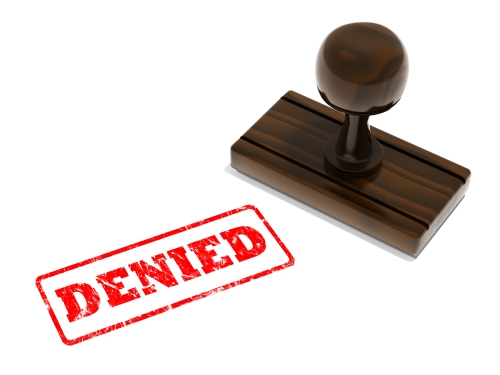“Throughout this process, we remained committed to the principle that ALE USA Inc. should not have to pay royalties on invalid patents, and neither should any other company.” – ALE attorneys
 On June 30, the U.S. Supreme Court denied certiorari to Chrimar Systems, Inc., thereby letting stand a decision of the United States Court of Appeals for the Federal Circuit and declining to consider the controversial issues of “when a judicial decision becomes binding on the parties, and whether a decree from a different branch of government can reverse an Article III court judgment.”
On June 30, the U.S. Supreme Court denied certiorari to Chrimar Systems, Inc., thereby letting stand a decision of the United States Court of Appeals for the Federal Circuit and declining to consider the controversial issues of “when a judicial decision becomes binding on the parties, and whether a decree from a different branch of government can reverse an Article III court judgment.”
In 2015, Chrimar filed a suit against ALE USA, Inc. for infringement of Chrimar’s patents, including U.S. Patent No. 8,155,012 (the ‘012 patent), which related to improved Ethernet equipment. The district court awarded Chrimar damages and ongoing royalties for the patents-in-suit and ALE appealed to the Federal Circuit (Chrimar I). In December 2017, the USPTO’s Patent Trial and Appeal Board (PTAB) issued a Final Written Decision finding certain claims of the patents-in-suit unpatentable in an unrelated inter partes review (IPR) proceeding filed by Juniper Networks. On the same day, the Federal Circuit affirmed the Juniper opinion (Chrimar II) and ordered that the previously affirmed district court decision be vacated and remanded for dismissal (Chrimar III), thereby concluding that the later administrative outcome operated as a preclusion against Chrimar asserting that its patents were valid.” Chrimar petitioned for rehearing en banc, but the Federal Circuit denied without opinion.
In March 2020, Chrimar filed a petition for certiorari asking the Supreme Court to take up the case on appeal. In particular, Chrimar asked the Court to answer the questions of whether the Federal Circuit may: 1. apply a finality standard for patent cases that conflicts with the standard applied by the Supreme Court and all other circuit courts in non-patent cases, and 2. whether a final judgment of liability and damages that has been affirmed on appeal may be reversed based on the decision of an administrative agency. After initially waiving its right to respond, ALE filed a brief in opposition at the request of the Court. Several amici weighed in, including US Inventor, Inc., The Naples Roundtable, and Baxter International, particularly urging the High Court to grant cert and reject the Fresenius/Simmons preclusion principle.
Chrimar and the amici argued that the Federal Circuit’s Fresenius/ Simmons preclusion principle has caused confusion and is in conflict with other circuits as well as within the Federal Circuit itself. The Fresenius/ Simmons preclusion principal stemmed from the Fresenius case, wherein the Federal Circuit held that it was bound by John Simmons Co. v. Grier Bros. Co., 258 U.S. 82 (1922). In its petition, Chrimar argued that Simmons, which reasoned that “district court must apply intervening legal developments affecting the asserted patent’s validity, even if the court of appeals already decided the validity issue the other way”, was “inapposite Supreme Court authority” because it involved an interlocutory decision where no measure of damages had been established, rather than an appeal from a final judgment and complete accounting.
In its brief in opposition, ALE argued that Chrimar’s petition should be denied for several reasons including: 1) the claims at issue have all been canceled by the USPTO, so Chrimar therefore has no legally protectable interest and lacks standing to appeal, 2) there is no circuit split – as argued by the amici – regarding preclusion principles “applicable to this case”, 3) the case is not “an attractive vehicle” for analyzing the questions presented as it includes a particularly unique set of facts, and 4) Chrimar’s argument for a new preclusion principle would undermine the intention of patent policy, as articulated in Oil States Energy Servs., LLC v. Greene’s Energy Grp, LLC, wherein the Supreme Court found that “inter partes review protects the public’s paramount interest in seeing that patent monopolies are kept within their legitimate scope.”
Following the Supreme Court’s denial of Chrimar’s petition, ALE attorneys Leisa Talbert Peschel and Chris Cravey of Jackson Walker commented: “Throughout this process, we remained committed to the principle that ALE USA Inc. should not have to pay royalties on invalid patents, and neither should any other company. This is an important decision protecting companies from the overreach of plaintiffs whose patent rights have been revoked, and gives appropriate deference to the PTAB, which is best equipped to decide such technical issues.”
Counsel for Chrimar declined to comment.
Image Source: Deposit Photos
Copyright: Rangizzz
Image ID: 4540592

![[IPWatchdog Logo]](https://ipwatchdog.com/wp-content/themes/IPWatchdog%20-%202023/assets/images/temp/logo-small@2x.png)

![[Advertisement]](https://ipwatchdog.com/wp-content/uploads/2024/04/UnitedLex-May-2-2024-sidebar-700x500-1.jpg)
![[Advertisement]](https://ipwatchdog.com/wp-content/uploads/2024/04/Artificial-Intelligence-2024-REPLAY-sidebar-700x500-corrected.jpg)
![[Advertisement]](https://ipwatchdog.com/wp-content/uploads/2024/04/Patent-Litigation-Masters-2024-sidebar-700x500-1.jpg)

![[Advertisement]](https://ipwatchdog.com/wp-content/uploads/2021/12/WEBINAR-336-x-280-px.png)
![[Advertisement]](https://ipwatchdog.com/wp-content/uploads/2021/12/2021-Patent-Practice-on-Demand-recorded-Feb-2021-336-x-280.jpg)
![[Advertisement]](https://ipwatchdog.com/wp-content/uploads/2021/12/Ad-4-The-Invent-Patent-System™.png)






Join the Discussion
3 comments so far.
Barrett Haynes
July 9, 2020 03:50 pmGorsuch upholds patents are govt. franchise; blatant Elitist Globalist Tyranny
Pro Say
July 1, 2020 01:10 pm“Them ostriches got nothing on us!’
— SCOTUS
Josh Malone
July 1, 2020 12:52 pmMessage to inventors: don’t waste your money obtaining or enforcing patents, the game is rigged.